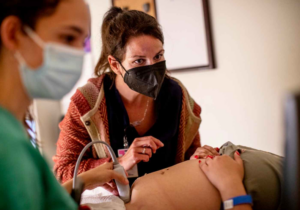|
Getting your Trinity Audio player ready...
|
An Abortion clinic plays a crucial role in providing safe and legal abortion services to women seeking reproductive healthcare. Ensuring the safety of patients, and healthcare providers, and maintaining high-quality care is of paramount importance. This article delves into the regulations, standards, and patient care protocols that govern abortion clinics, highlighting their significance in promoting women’s health and well-being.

Understanding Abortion Clinic Regulations
Abortion clinic safety is heavily regulated by national and regional laws, ensuring that medical procedures are conducted in a safe and ethical manner. These regulations vary between countries and jurisdictions but often cover areas such as clinic licensing, staff qualifications, facility requirements, and medical waste disposal. By adhering to these regulations, abortion clinics aim to protect patients’ health, maintain transparency, and uphold professional standards.
Standards for Abortion Procedures
To ensure patient safety and well-being, abortion clinics must adhere to rigorous medical standards for the procedures they offer. These standards encompass guidelines for medical examinations, pre-procedure assessments, anaesthesia administration, surgical techniques, and post-procedure care. By following evidence-based protocols and industry best practices, clinics can minimize risks and complications associated with abortion procedures.
Ensuring Patient Confidentiality and Privacy
Patient confidentiality and privacy are paramount in abortion clinics to protect patient’s rights and dignity. Staff members are trained to handle sensitive information discreetly and maintain strict confidentiality. Adequate measures are implemented to safeguard patient records and protect them from unauthorized access. This fosters an environment of trust and respect, encouraging women to seek reproductive healthcare without fear of judgment or stigma.
Professional Training and Competence
Abortion clinic staff undergo extensive training and continuous professional development to ensure their competence in providing safe and compassionate care. Physicians, nurses, counsellors, and support staff receive specialized training in abortion care, counselling, and reproductive health. By staying abreast of medical advancements and best practices, healthcare providers in abortion clinics maintain a high standard of care.
Comprehensive Counseling and Informed Consent
Before any abortion procedure, patients are provided with comprehensive counselling to ensure they fully understand the process, risks, and available options. Informed consent is an essential component of patient care, empowering women to make autonomous decisions about their reproductive health. Abortion clinics prioritize patient education and support to ensure women are well-informed before making choices that align with their personal circumstances.
Managing Emotional and Psychological Needs
Abortion can be an emotionally challenging experience for some women. Abortion clinics recognize the importance of addressing emotional and psychological needs alongside medical care. Trained counsellors and support staff offer compassionate care, ensuring patients have access to the emotional support they need during and after the procedure. Counselling services may extend beyond the procedure itself, providing women with ongoing support as they process their feelings and emotions.
Accessibility and Non-Discrimination
Abortion clinics strive to be accessible to all women, regardless of their socioeconomic background, ethnicity, or geographic location. Ensuring affordability, offering flexible payment options, and addressing potential barriers to access are essential aspects of patient care. Furthermore, abortion clinics are committed to non-discrimination and providing care without prejudice, respecting the diversity of their patients.
Conclusion
Abortion clinic safety is a cornerstone of women’s reproductive healthcare. Through adherence to strict regulations, medical standards, and patient-centred care, abortion clinics prioritize patient safety and well-being. Confidentiality, professional competence, comprehensive counselling, emotional support, and accessibility create an environment that respects women’s autonomy and reproductive rights. By maintaining high standards of care, abortion clinics play a crucial role in safeguarding women’s health and promoting their overall well-being. Ensuring access to safe abortion services empowers women to make informed choices about their bodies, health, and futures. It is through a continued commitment to these principles that abortion clinics contribute to advancing women’s reproductive healthcare and rights.
